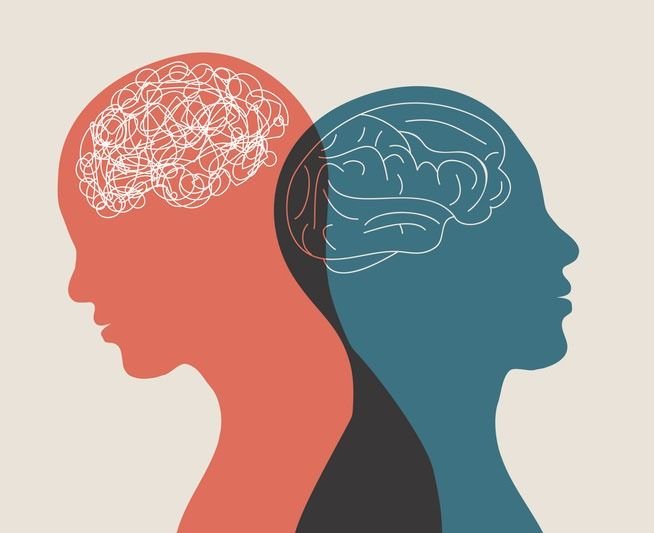
BEGIN YOUR WELLNESS JOURNEY.
Cognitive Behavioral Therapy
Cognitive Behavioral Therapy or CBT is a short-term, problem-focused form of behavioral treatment that helps people see the difference between beliefs, thoughts, and feelings, and free them from unhelpful patterns of behavior.
CBT is grounded in the belief that it is a person’s perception of events – rather than the events themselves – that determines how he or she will feel and act in response.
CBT can help with:
Depression
Anxiety
Panic attacks
Phobias
Obsessive compulsive disorders (OCD)
Posttraumatic stress disorder (PTSD)
Substance dependency
Persistent pain
Disordered eating
Sexual issues
Anger management issues
Most people with clearly defined behavioral and emotional concerns tend to reap the benefits of CBT. If any of the above issues resonate with you, I encourage you to try cognitive behavioral therapy.
With CBT, you’ll be able to adjust the thoughts that directly influence your emotions and behavior. This adjustment process is referred to as cognitive reconstructing, which happens through different CBT techniques.
Some CBT techniques are:
Journalling
Challenging beliefs
Relaxation
Meditation
Mindfulness
Social, physical and thinking exercises
Cognitive behavioral therapy is much more than sitting and talking about whatever comes to mind during a session. CBT sessions are structured to ensure that the therapist and the person in treatment are focused on the different goals of each session, which in turn ensures that each and every session is productive.
If you or someone you know would benefit from cognitive behavioral therapy, please contact me today. I would be happy to speak with you about how I may be able to help.
Counseling for Anxiety
Is anxiety taking over your life? Does it feel like you can’t control it no matter how hard you try? Have you already tried therapy but found it ineffective?
If this sounds like you, I’m confident I can help. My practice offers the most effective forms of treatment, to get the relief from anxiety that you deserve.
When it comes to treating anxiety disorders, research shows that therapy is usually the most effective option. That’s because anxiety therapy – as opposed to just anxiety medication – treats more than just symptoms to the problem.
Often, these are the symptoms of anxiety:
Nervousness, restlessness or being tense
Feelings of danger, panic or dread
Rapid breathing or hyperventilation
Increased or heavy sweating
Trembling or muscle twitching
Weakness or lethargy
Difficulty focusing or thinking clearly about anything other than the thing you’re worried about
Insomnia
Obsessions about certain ideas, a sign of obsessive-compulsive disorder
Anxiety surrounding a particular life event or experience that has occurred in the past, a sign of post-traumatic stress disorder
Therapy can help to uncover the underlying causes of your worries and fears, learn how to relax, look at situations in a new, less frightening way, and develop better coping mechanisms and problem-solving skills.
If you or your child suffer from an anxiety disorder, I invite you to contact me today for a free consultation.
Obsessive Compulsive Disorder
Obsessive Compulsive Disorder, or OCD, involves having obsessive thinking patterns that can include unwanted thoughts, images or urges that make a person feel anxious or distressed.
Individuals who have OCD often have significant difficulty pushing away or ignoring these thoughts. Those with OCD also have compulsive behaviors which are an attempt to reverse the obsessive thoughts or urges by performing some sort of action.
Common signs, according to the Mayo Clinic, of OCD are:
Intrusive thoughts
Constant checking
Constant counting
The repeated cleaning of one or more items
Constantly checking the stove or door locks
Fear of contamination
Hoarding
Thoughts that you might be harmed
Thoughts that you might cause others harm
If one or more of the above symptoms resonates with you, I encourage you to look into OCD therapy today. Research shows that the most effective treatments for OCD are Cognitive Behavioral Therapy (CBT) and/or medication.
As a licensed mental health professional, I have extensive training in helping patients overcome and grow from their OCD. And together, we’ll create a strategy that works explicitly for you or your child. Contact me today for a free consultation.
Play Therapy
Play therapy makes a difference. Play is an enjoyable, fun activity that elevates our spirits and brightens our outlook on life. Play relieves feelings of stress and boredom and, most importantly, helps us express ourselves.
What is Play Therapy?
Play therapy refers to a large number of treatment methods, all applying the therapeutic benefits of play. Play therapy helps children to address and resolve their own problems and builds on the natural way that children learn about themselves and their relationships in the world around them.
APT defines play therapy as the “systematic use of a theoretical model to establish an interpersonal process wherein trained play therapists use the therapeutic powers of play to help clients prevent or resolve psychosocial difficulties and achieve optimal growth and development.”
What does Play Therapy help?
Play therapy helps children:
Become more responsible for their behaviors and develop more successful strategies
Develop new and creative solutions to problems
Develop respect and acceptance of self and others
Learn to experience and express emotion
Cultivate empathy and respect for thoughts and feelings of others
Learn new social skills and relational skills with family
Develop self-efficacy and a better assuredness about their abilities
Play therapy aims to help a child’s growth and development. The practice of play therapy requires extensive, specialized education, training and experience. With my knowledge and background, I am confident that you and I can set your child up for success.
If you’re interested in learning more about play therapy and how it can help your child grow, contact me today for a free consultation.
Social Anxiety Disorder Counseling
Do you experience intense anxiety or nervousness when faced with social situations?
Do you fear being judged or criticized by others?
Are you always worried about making mistakes, looking bad or being embarrassed in front of others?
If you answered yes to any of the above, you may have a social anxiety disorder. While it is normal to feel nervous in some social situations, people who experience daily social anxiety tend to avoid everyday interactions that cause them significant fear, anxiety, self-consciousness, and embarrassment because they fear being scrutinized or judged by others.
People with Social Anxiety Disorder often experience significant distress in the following situations:
Being teased or criticized
Being the center of attention
Being watched or observed while completing a task
Having to say something in a formal, public setting
Meeting people in authority, such as important people or authority figures
Feeling insecure and out of place in social situations
Embarrassing easily
Meeting other people’s eyes
Social anxiety disorder is a chronic mental health condition. Learning coping skills in therapy sessions can help you gain the confidence you need to improve your ability to interact with others.
If you feel you may have a social anxiety disorder, I encourage you to contact me today for a free consultation.
Telehealth
Do you need support, but can’t make it to an in-person appointment? Are you a busy stay-at-home or working parent, and don’t have the time to drive across town for an appointment?
Do you live in a more rural area, or maybe you prefer to just do things Virtually?
If so, we can help you through virtual therapy, or telehealth.
Telehealth allows us to provide counseling and therapy to our clients via live video conferencing. This can be done anywhere you have a computer or smartphone.
Telehealth appointments can be very beneficial if getting to a traditional in-person appointment is not convenient, or you simply just don’t want to.
Our telehealth solution allows you to schedule an appointment directly online and have the entire therapy session take place digitally. While you don’t need a video camera, we do recommend you use one. To learn more and get started with virtual therapy, please contact us today.
Therapy for Depression
I understand the social stigmas that come with label of being depressed, and thus aim to help clients sort out their environmental, biological and circumstantial factors while offering support and care through a very dark time in their lives.
If you are hoping to finally lighten this load and feel like yourself again, contact me today for a free consultation.
Are you feeling hopeless, isolated and not your usual self?
Do these thoughts often enter your mind?
I am worthless and can’t do anything about it.
I feel guilty for just wanting to eat, sleep and be alone.
I hate who I am these days.
I can’t stop crying, which makes me want to stay away from others.
I feel gut-wrenching pain, but no one understands.
My life and the world around me are dark. I hate it, but I can’t change it.
If you have had any variation of these thoughts and don’t feel like your usual self, chances are you may be suffering from depression.
I want you to know that you are not alone and there are people who can help. Many of my clients find relief in realizing that their struggle does not own them and that there are many options available to once again have hope for their lives.

Let's get started
Sierra Counseling Services offers a variety of therapeutic interventions via our telehealth platform. Providing 100% telehealth services allows us to make therapy convenient for you. With evening and Saturday sessions available, book a time that works best for your schedule.
Feel free to browse the services below, and please contact me if you have any questions.
Quote Source
MEET YOUR LCSW
Sierra Larson
Licensed Clinical Social Worker
My Approach
I use a variety of treatments such as CBT, DBT, TF-CBT, CPT, Play, Solution-Focused, and Strength-Based Practices to help you become who you want to become.
My Focus
My clients typically are having trouble with significant changes in their life. Some find it hard to move on after past trauma and others are so anxious about the future that they can’t take another step forward. I walk with them on that journey and help them take the next right step.
My Communication Style
I have an extremely supportive style. I practice active listening and provide a safe space for you to express yourself without fear of judgment. Those that work with me feel like they have someone in their corner who genuinely cares about their progress.
My Journey to Therapy
I value growth and I want everyone I meet to grow into the best version of themselves and live the life they want to live.
My Goals for You
First, I help clients envision what they want their life to look like. Then, we look at the presenting problems that prevent them from living that life. Finally, the client and I work together to come up with goals to help them overcome those presenting problems.
My First Session With You
The first session is a lot of getting to know each other. Most people who haven’t been in a session before are pretty nervous. I try to make them feel more comfortable by letting them know what to expect and discussing simple things like their likes, dislikes, and what brought them into treatment. We also discuss expectations for therapy.







